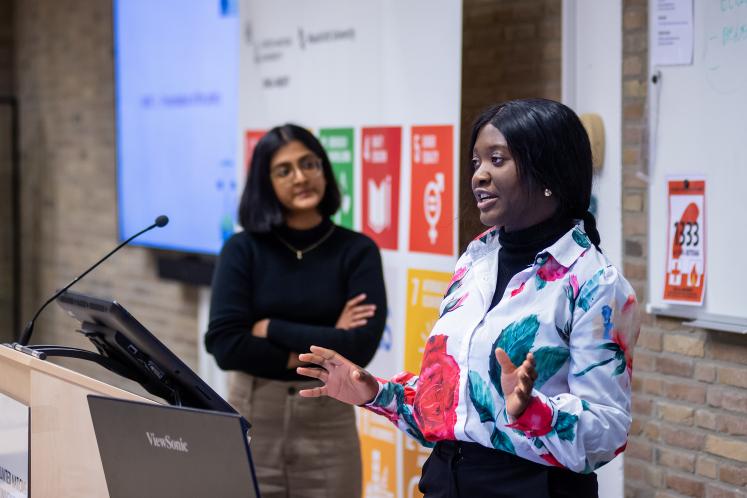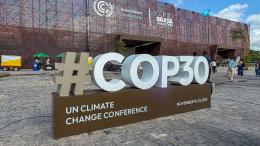The role that individuals and organisations – such as professional associations and non-governmental organisations (NGOs) – play in shaping policy has become a characteristic feature of policymaking around the world. On 11 November 2024, UNU-MERIT hosted thought-provoking discussions at our annual Public Policy MPP Conference, a key fixture on our MSc in Public Policy and Human Development (MPP) academic calendar. This year's theme, 'Influencing Policy: Ideas, Individuals and Institutions', brought together students and staff to discuss examples of both successful and unsuccessful attempts to influence policy from around the world.
After welcoming words from the Communications Officer of our MPP student association DEMOS (Abdisalam Mohamud) and an inspiring keynote by Prof. Zina Nimeh reflecting on the importance of moving beyond binary thinking and recognizing complexity in policymaking, four of our current MPP students took to the floor to discuss assignment written in the context of one of their first courses in the programme. After each presentation, students Yousra Achour, Liliana Silva Almeida, Suhani Pandey and Sara Federío Albaina facilitated discussions with the audience to draw out the key messages of each paper.
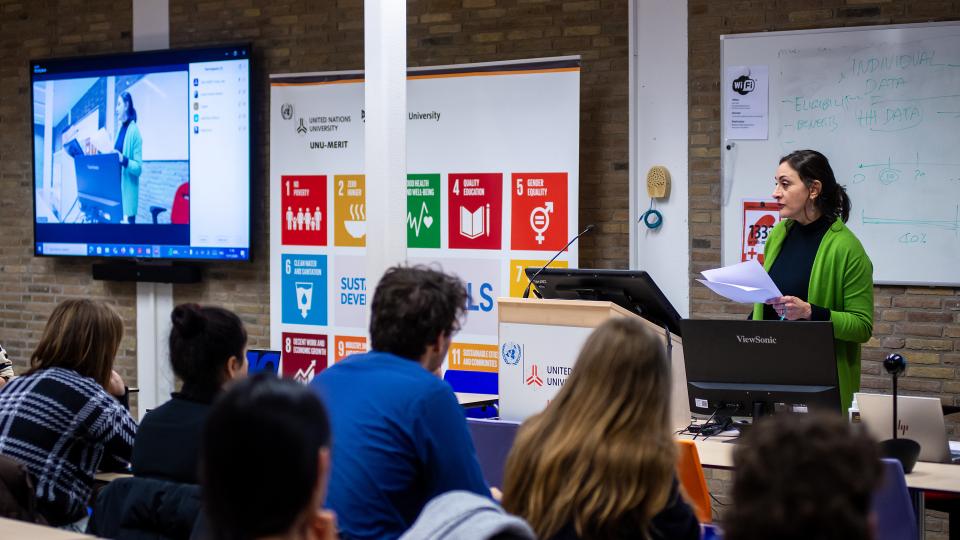
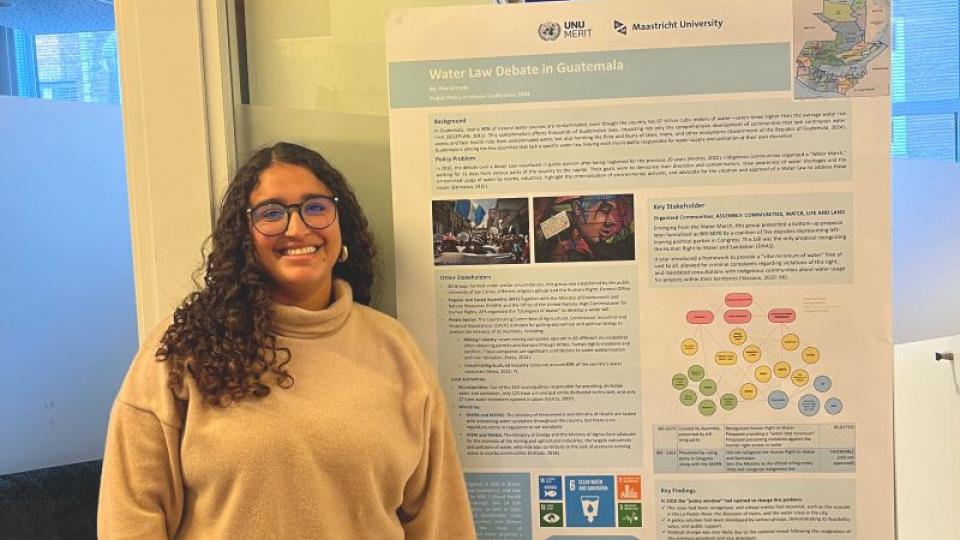
Anna Bies opened with an interesting presentation on reproductive health: "Kristina Hänel, a German gynecologist, was pivotal in challenging Germany’s §219a in the Criminal Code, which penalized doctors for publicly sharing information about abortion. Through her conviction in 2017 and subsequent public advocacy, Hänel highlighted how this law limited women’s reproductive rights by restricting their access to information. Her efforts, including a petition garnering 150,000 signatures, drew national attention and influenced legislative change. Supported by advocacy groups, Hänel persistently advocated for women’s right to access appropriate information on abortion, embodying her belief that if you want to change something, be persistent and repeatedly advocate for your position. Ultimately, her work led to the law’s deletion in 2022.”
Jakob Reuter then discussed the efforts of Andrew Yang, an American politician and aspiring democratic presidential nominee, and his attempt to put a federal universal basic income program on the policy agenda of the United States, specifically as a response to a spiraling Covid economy. His so-called “Freedom Dividend” would have given $1000 a month to every American citizen, no questions asked. While showing initial success and promise for a somewhat unknown candidate, Yang ultimately failed, both at securing the democratic nomination and setting the policy agenda. Despite this, his campaign represents a crucial milestone regarding the UBI policy discussion in the USA.
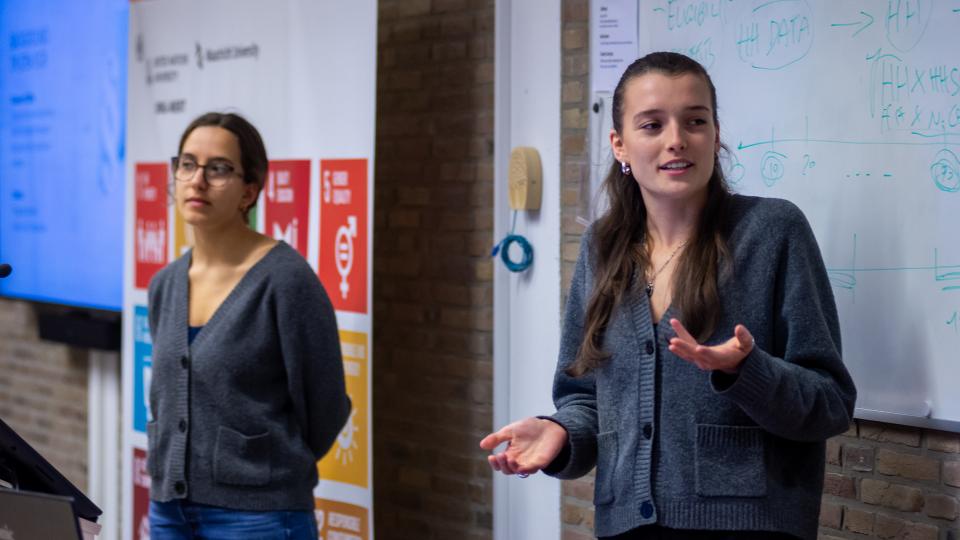
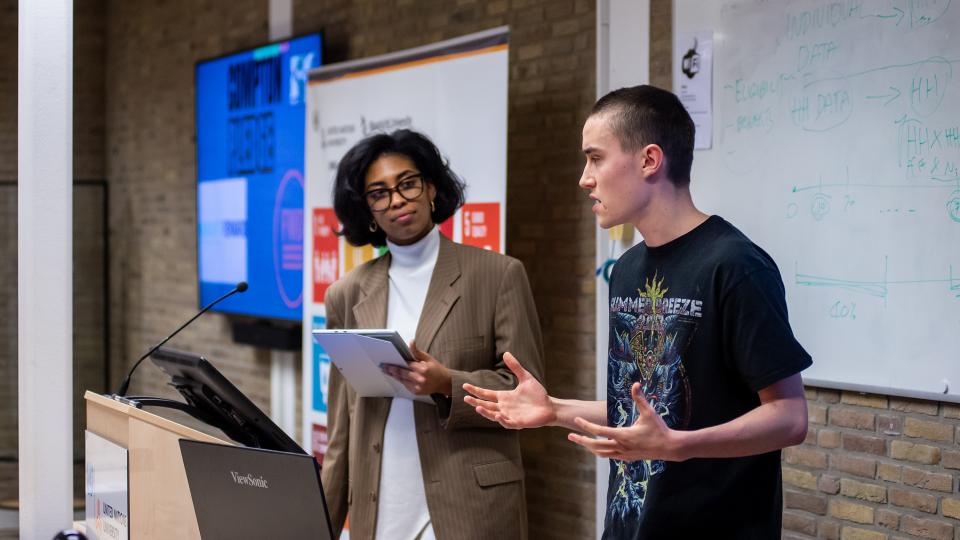
During the break of the conference, there were five poster presentations by students on the following topics: Wildfire Policy in Portugal (by Margarida Leite Magalhães), Water in Guatemala (by Flor Estrada Castillo - learn more about Flor's presentation here), Air Pollution in Germany (by Lisa Lendermann), The Nitrogen Problem in the Netherlands (by Lars Dautzenberg), and Oil Reserves in Ecuador (by Reza Siavash Ghasemi). Attendees had the opportunity to quiz the presenters about their research, deepening their understanding of the various ways that individuals, ideas, and institutions can influence policy, and the factors that influence whether they succeed.
Milca Lupwe Lamen reopened the discussion by presenting her work on food insecurity during COVID-19 in France. She examined the efforts of UNEF, a student union, who advocated for an extension of Macron’s €1 euro meal policy to all students, regardless of their financial background. By collaborating with the media, politicians, and the public, UNEF brought the issue to the political agenda. However, as Milca notes: “Despite their efforts, the policy was not passed. Yet, UNEF succeeded by effectively spotlighting the issue and ensuring it became a priority in the public sphere."
In the final presentation of the conference, Emma Clarke explored the failure of Ireland's policy approach to asylum and the influence of the Irish Refugee Council on its evaluation and reformation. The policy of Direct Provision is one that purports to provide shelter to international protection applicants whilst they await the decision regarding their right to remain in the country; however, the reality of its realization has become an internationally considered breach of human rights. As Emma shared: “In my presentation, I considered the origins and institutional structure of the Irish policy of Direct Provision, its issues and the role the Irish Refugee Council has played in holding it to evaluatory account.”
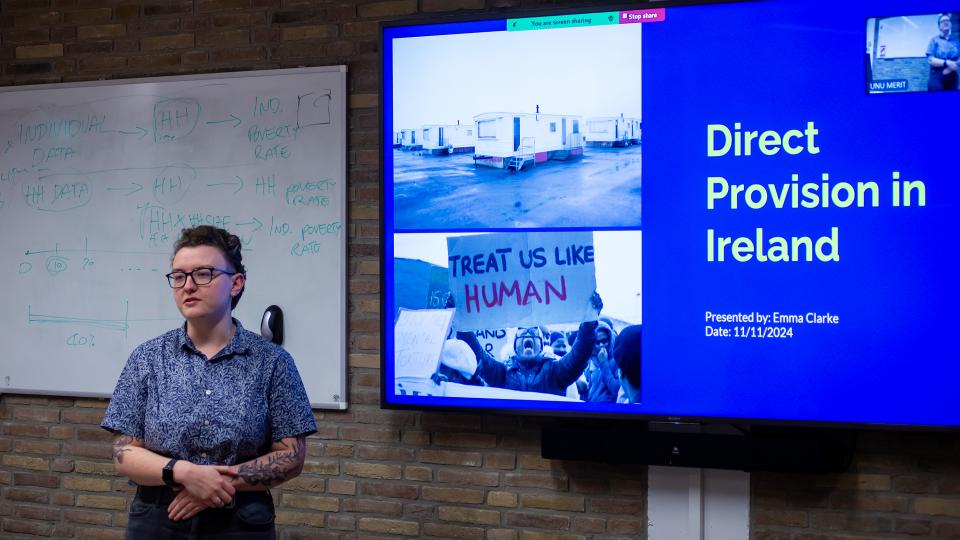
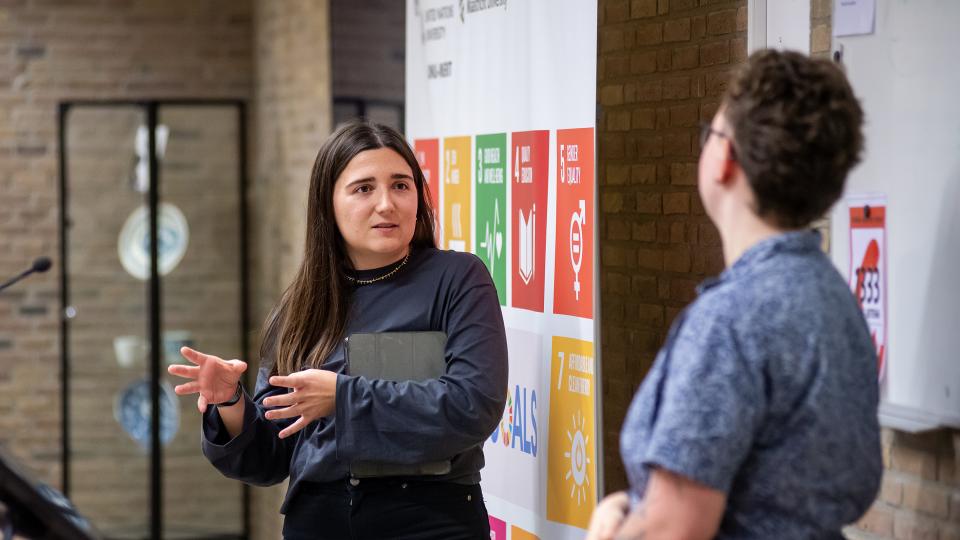
The conference closed with some moments to reflect on the key takeaways from the conference. Students pointed to the importance of applying theory to practical case studies and the benefits of learning from one other. They also spoke of the importance of understanding context and being persistent when one wishes to influence and change policy.
Curious about the MPP programme?
Sign up now for our online information session on Thursday 21 November 2024 at 16:00 CET to find out more about our exciting one-year, dual-diploma master's programme offered jointly by the United Nations University (UNU-MERIT) and Maastricht University: the MSc in Public Policy and Human Development.
Media credits for all photos:
H. Pijpers / UNU-MERIT & Maastricht University

